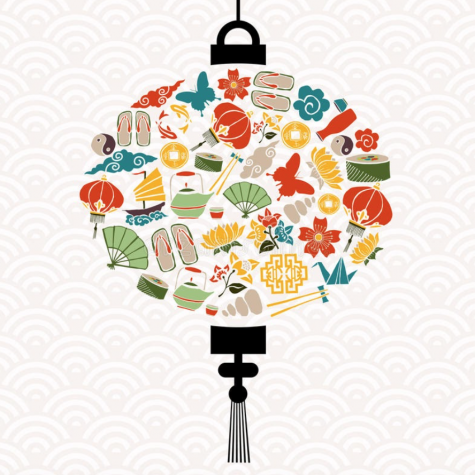Embracing our Asian roots
February 4, 2021

What does your culture mean to you? You may automatically associate food and holidays with the word “culture”. However, for many East students, culture is much more than the foods they eat or the holidays they celebrate; it is a part of their identity. Culture is something that individuals find pride in and share with others. Lalitha Viswanathan (‘22) and Benjamin Xi (‘23) are members of Indian Culture Society (ICS) and Chinese Student Association (CSA) respectively whose experiences with being Asian helped them fully-heartedly embrace their Asian culture.
“People would say I’m not South Asian enough because I don’t speak the language or go to Temple every week,” said Viswanathan. “I feel like it shouldn’t be stigmatized.”
Viswanathan is a second-generation Indian American who was raised in a household that did not speak Tamal, her native language, regularly. Feeling disconnected from her culture, she reflected on her cultural ties to her own Asian culture.
“My native tongue and not knowing the culture were the two biggest things that I think that I’ve kind of missed out,” explains Viswanathan.
During quarantine, she has been able to self teach herself Tamal and immerse herself in Bollywood movies. She feels that there is no set amount of culture that an individual needs to feel accepted in the Asian community. ICS and high school gave her the opportunity to surround herself with others that related to her. By doing so enabled Viswanathan to love her culture instead of suppressing it.
Xi strongly believes that it is important to appreciate your culture and find positive ways to represent it.
“I feel like ignoring my culture would be keeping a part of myself hidden from other people,” said Xi.
Xi, a first-generation Asian American, was able to appreciate his Asian roots at a young age. Like Viswanathan, he does not speak his native language fluently, which he feels is okay.
“I feel like my culture is a key aspect of who I am,” expresses Xi. “I don’t think I need to know Chinese 100% to feel connected to my culture.”
Reflecting on elementary school, Xi recounts racist actions that his classmates would do in the third grade. Being nine years old at the time, Xi did not know this action represented racism. Kids would pull their eyes back in such a way as to mock Asians. Even though his classmates would not do this directly to him, Xi finds the memory saddening to look back on.
For Viswanathan and Xi, culture is a major component to their identities. Culture goes much deeper than the surface of food and holidays; it opens the door for discussion, self-expression, and representation. Now take a few seconds to reconsider the question: What does your culture mean to you?